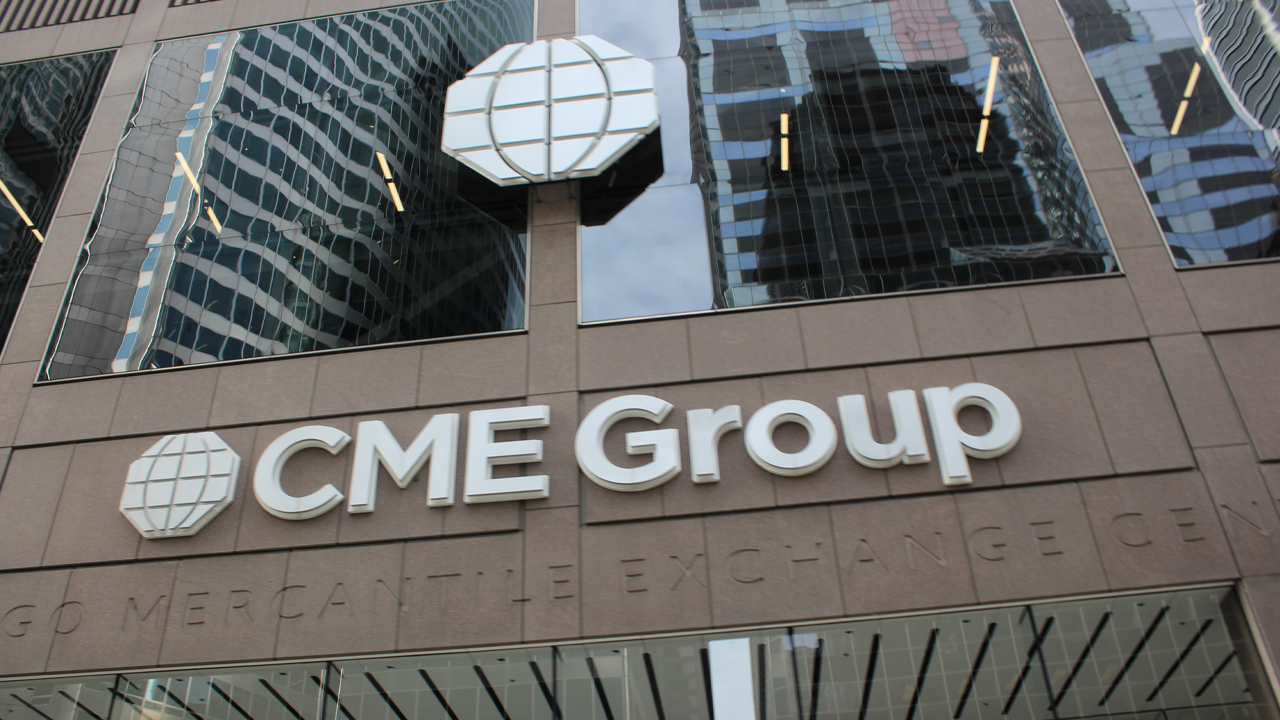According to a recent report, the world’s largest derivatives exchange CME Group is looking to register as a direct futures commission merchant (FCM). CME Group’s decision follows the digital currency exchange FTX, as the crypto company applied to become a derivative clearing organization and awaits approval from the U.S. Commodity Futures Trading Commission (CFTC). If CME Group is approved to be an FCM, the company can bypass third-party brokers and offer futures directly on the CME platform.
Derivatives Exchange CME Group Registers for FCM While FTX Awaits CFTC Approval
The world’s largest financial derivatives exchange, CME Group, has reportedly filed paperwork to become a futures commission merchant (FCM), according to a report published by the Wall Street Journal (WSJ). WSJ author Alexander Osipovich explained CME filed the registration in August and Osipovich opines that the company is “taking cue from [the] crypto rival FTX.”
If CME Group’s FCM registration is approved, CME will be able to offer derivatives directly without the need for brokerage houses like TDAmeritrade, Saxo Bank Interactive Brokers, Robomarkets, and Grandcapital. FTX is awaiting approval from the CFTC to become a derivatives clearing organization. Last March, the CFTC opened public comments so it could get insight into FTX’s proposal. In mid-May, CME Group chair and chief executive officer Terry Duffy wrote that the move by FTX could present “market risk.”
“FTX’s proposal is glaringly deficient and poses [a] significant risk to market stability and market participants,” Duffy opined at the time. “FTX proposes to implement a ‘risk management light’ clearing regime that would significantly increase market risks by potentially removing up to $170 billion of loss-absorbing capital from the cleared derivatives market, eliminating standard credit checks, and destroying risk management incentives by limiting capital requirements and mutualized risk.”
The report written by Osipovich details that the chairman and chief executive of Advantage Futures, Joseph Guinan, says the move could be very dramatic. “I would not expect the CME to go down the path where they compete directly with FCMs for clients,” Guinan remarked. “However, if they did go down this path, that would be a game-changer for the FCM industry and a dramatic concern for every FCM.”
While the CFTC weighs in on the FTX proposal, Osipovich cited Craig Pirrong, a finance professor at the University of Houston when he said that CME’s FCM decision was a response to the FTX plan. “From a philosophical perspective, they would prefer not to do this,” Pirrong said on September 30. “But in the event that the CFTC does approve the FTX model, from a competitive perspective, they may feel that they have to do this.”
Osipovich also published commentary from a CME Group spokesperson who commented on CME’s FCM August filing. “Our commitment to the FCM model and the significant risk management benefits it provides to all industry participants remains unwavering,” the CME Group representative said. In terms of bitcoin (BTC) futures volume, FTX and CME Group have relatively the same amount of bitcoin futures open interest and BTC futures trade volume as well.
Tags in this story
bitcoin futures, CME Group, CME Group CEO, CME Group chair, Craig Pirrong, derivatives, derivatives exchange, derivatives markets, ftx, FTX Exchange, Futures, futures exchange, Grandcapital, Joseph Guinan, Options Exchange, Robomarkets, Saxo Bank Interactive Brokers, TDAmeritrade, Terry Duffy, trading
What do you think about CME Group going face to face with FTX by applying for a futures commission merchant status? Let us know what you think about this subject in the comments section below.
![]()
Jamie Redman
Image Credits: Shutterstock, Pixabay, Wiki Commons
Disclaimer: This article is for informational purposes only. It is not a direct offer or solicitation of an offer to buy or sell, or a recommendation or endorsement of any products, services, or companies. Bitcoin.com does not provide investment, tax, legal, or accounting advice. Neither the company nor the author is responsible, directly or indirectly, for any damage or loss caused or alleged to be caused by or in connection with the use of or reliance on any content, goods or services mentioned in this article.


